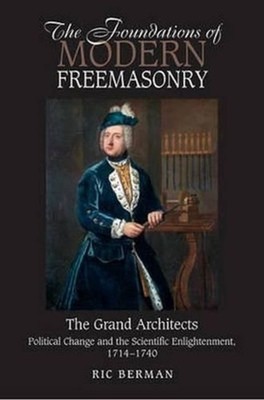
- We will send in 10–14 business days.
- Author: Richard Berman
- Publisher: Sussex Academic Press
- ISBN-10: 1845196988
- ISBN-13: 9781845196981
- Format: 15.5 x 23.1 x 2.3 cm, minkšti viršeliai
- Language: English
- SAVE -10% with code: EXTRA
Reviews
Description
Following the appointment of its first aristocratic Grand Masters in the 1720s and in the wake of its connections to the scientific Enlightenment, 'Free and Accepted' Masonry became part of Britain's national profile and the largest and most influential of Britain's extensive clubs and societies. The organisation did not evolve naturally from the mediaeval guilds and religious orders that pre-dated it but was reconfigured radically by a largely self-appointed inner core at London's most influential lodge, the Horn Tavern. Freemasonry became a vehicle for the expression of their philosophical and political views, and 'the Craft' attracted an aspirational membership across the upper middling and gentry. Through an examination of previously unexplored primary documentation, Foundations contributes to an understanding of contemporary English political and social culture and explores how Freemasonry became a mechanism that promoted the interests of the Hanoverian establishment and connected the metropolitan and provincial elites. The book explores social networks centred on the aristocracy, parliament, the learned and professional societies, and the magistracy, and provides pen portraits of the key individuals who spread the Masonic message. Foundations & Schism (Sussex Academic, 2013), have been described as 'the most important books on English Freemasonry published in recent times', providing 'a precise, social context for the invention of English Freemasonry'. Berman's analysis throws a new and original light on the formation and development of what rapidly became a national and international phenomenon.
EXTRA 10 % discount with code: EXTRA
The promotion ends in 23d.06:52:55
The discount code is valid when purchasing from 10 €. Discounts do not stack.
- Author: Richard Berman
- Publisher: Sussex Academic Press
- ISBN-10: 1845196988
- ISBN-13: 9781845196981
- Format: 15.5 x 23.1 x 2.3 cm, minkšti viršeliai
- Language: English English
Following the appointment of its first aristocratic Grand Masters in the 1720s and in the wake of its connections to the scientific Enlightenment, 'Free and Accepted' Masonry became part of Britain's national profile and the largest and most influential of Britain's extensive clubs and societies. The organisation did not evolve naturally from the mediaeval guilds and religious orders that pre-dated it but was reconfigured radically by a largely self-appointed inner core at London's most influential lodge, the Horn Tavern. Freemasonry became a vehicle for the expression of their philosophical and political views, and 'the Craft' attracted an aspirational membership across the upper middling and gentry. Through an examination of previously unexplored primary documentation, Foundations contributes to an understanding of contemporary English political and social culture and explores how Freemasonry became a mechanism that promoted the interests of the Hanoverian establishment and connected the metropolitan and provincial elites. The book explores social networks centred on the aristocracy, parliament, the learned and professional societies, and the magistracy, and provides pen portraits of the key individuals who spread the Masonic message. Foundations & Schism (Sussex Academic, 2013), have been described as 'the most important books on English Freemasonry published in recent times', providing 'a precise, social context for the invention of English Freemasonry'. Berman's analysis throws a new and original light on the formation and development of what rapidly became a national and international phenomenon.


Reviews